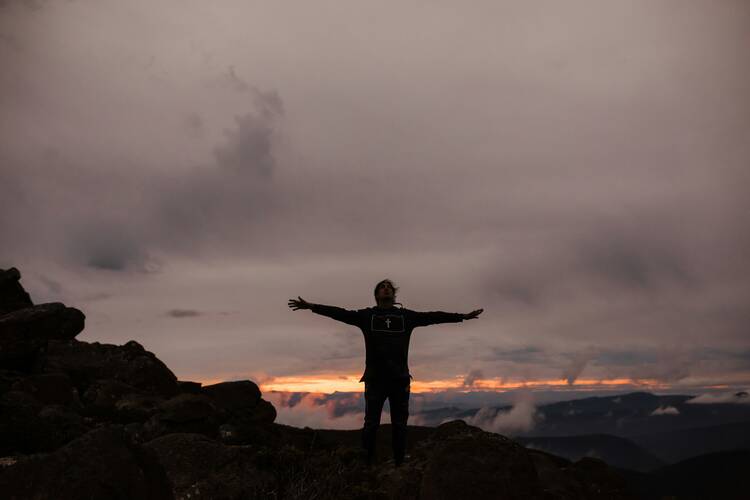A Homily for the Solemnity of All Saints
Readings: Revelation 7:2-4, 9-14 1 John 3:1-3 Matthew 5:1-12a
What does holiness look like? We are supposed to have seen it. That is the point of today’s Solemnity of All Saints. We acknowledge and revere those not named in the church’s canonical roster of saints, men and women who nonetheless constitute what St. John the Seer called:
a great multitude,
which no one could count,
from every nation, race, people, and tongue (Rev 7:9).
We have known them, and we know that they are now with Christ and all his saints, which is how we define heaven. Hence the question, how do we know that? What does holiness look like?
The word “holy” hints at the otherness of God. It comes from the Proto-Germanic word hailagaz, meaning “whole” or “uninjured.” We speak of God as holy because we experience ourselves as internally divided and cut off from something essential. Hence God is that which is undivided and vital, something whole and complete within itself.
If you have followed all of that, you can see the challenge in describing holiness. We are saying that some people, folks we have known, have a Godly quality. But what would that quality be, what does it look like, when we have no direct knowledge of God?
We are essentially saying that we have experienced these people as undivided, whole and uninjured. The great existentialist philosopher Søren Kierkegaard defined the saint as the person who wills the one thing.
Father in heaven! What is a man without Thee! What is all that he knows, vast accumulation though it be, but a chipped fragment if he does not know Thee! What is all his striving, could it even encompass a world, but a half-finished work if he does not know Thee: Thee the One, who art one thing and who art all! So may Thou give to the intellect, wisdom to comprehend that one thing; to the heart, sincerity to receive this understanding; to the will, purity that wills only one thing. In prosperity may Thou grant perseverance to will one thing; amid distractions, collectedness to will one thing; in suffering, patience to will one thing. Oh, Thou that giveth both the beginning and the completion, may Thou early, at the dawn of day, give to the young man the resolution to will one thing. As the day wanes, may Thou give to the old man a renewed remembrance of his first resolution, that the first may be like the last, the last like the first, in possession of a life that has willed only one thing. (Introduction to Purity of Heart Is to Will One Thing)
What you recognized in your grandmother, in your uncle, in your beloved and departed friends is something of the wholeness, the undividedness of God. In a melting world, they were solid.
To borrow from Hamlet, they also suffered “the slings and arrows of outrageous fortune,” yet they recollected themselves and recovered. They remained whole, the most sterling of qualities, one that only shows itself when you contrast it with its opposite. They did not fall apart.
The world and its history never noticed these men and women. St. John explains why:
The reason the world does not know us
is that it did not know him (1 Jn 3:1).
But we have known them. We cannot forget them. For us, they were, and remain, portals unto God.
These poor in spirit,
these who have mourned,
these meek ones,
these who have hungered and thirsted for righteousness,
these who have shown mercy and been clean of heart,
these peacemakers,
they have been our forebears and friends.
We often picture them in prayer—as well we should—when we cannot picture the God who lies beyond images, when even the visage of the dear Lord himself needs to be fleshed out for today’s world.
We might be hard pressed to explain it, but we know what holiness looks like. We have seen it in the saints we call our own. And that means we know what we ourselves are looking for.








